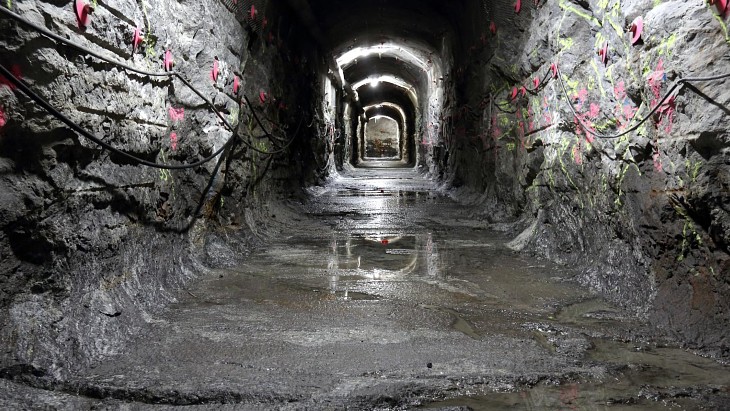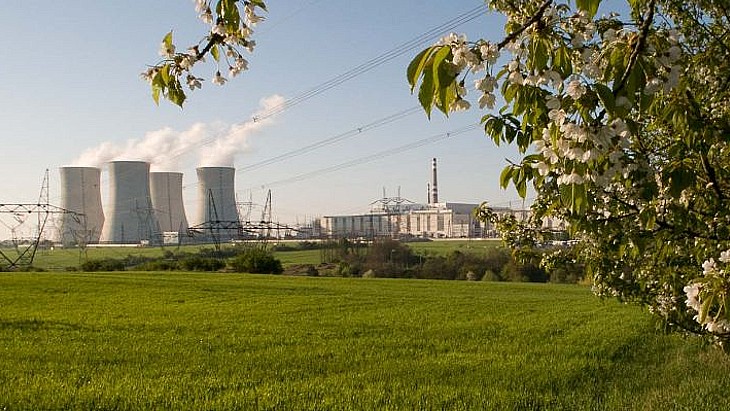Investigations into the causes and nature of quality deviations detected on certain welds in the main secondary system of the EPR reactor under construction at Flamanville, northern France, will continue for "several more weeks", EDF said yesterday. The utility warned that the start-up of the reactor could possibly be delayed by "several months".
.jpg) |
| The Flamanville EPR (Image: Alexis Morin and Antoine-Soubigou/EDF) |
In a pressurised water reactor, steam generators transfer reactor core heat from the primary coolant loop into a secondary loop where it can be used to generate electricity. The secondary loop is a closed system in which steam produced in the steam generator is conducted towards the turbine. Once condensed, the water is returned to the steam generator.
The first quality deviation in the welding of the main secondary system of the Flamanville EPR was detected on 21 March during the initial comprehensive inspection, a regulatory requirement prior to the reactor starting up. This inspection includes an examination of the welds in the primary and secondary systems, and allows an initial reference state of the plant to be established before it begins operating.
Following the detection of deviations, EDF decided to carry out additional checks on the 150 welds in question in order to identify exactly which ones are subject to quality deviations. It also ordered a report into the causes and nature of the deviations, in order to define the necessary corrective actions and methods to be proposed to the French nuclear safety regulator, the Autorité de Sûreté Nucléaire (ASN), so as to meet safety requirements. EDF said on 10 April that it expected to complete the checks and the report by the end of May. ASN requested EDF extend the checks on welds to other systems.
In a statement yesterday, EDF said: "On the basis of the investigations carried out by EDF, discussions with the ASN will continue for several more weeks. The impact on the schedule and, if necessary, on the cost of the Flamanville 3 project will be announced then."
Construction work began in December 2007 on the 1650 MWe unit at the Flamanville site in Normandy - where two reactors have been operating since 1986 and 1987. The EPR reactor was originally expected to start commercial operation in 2013, but owing to delays this is now expected late this year. EDF's roadmap for the Flamanville 3 project, drawn up in September 2015, sees fuel loading and start-up of the reactor at the end of the fourth quarter of 2018. It also sets the project cost at EUR10.5 billion (at the 2015 rate, excluding interim interest).
Cold functional tests - which verify the leak-tightness of the primary circuit - began at Flamanville 3 on 18 December and were completed on 6 January. Testing of the reactor building to confirm its airtightness was completed on 3 April. Hot functional tests - which involve checking the equipment under similar temperature and pressure conditions to those under which it will operate - had been due to start in July.
Preparing for extended Fessenheim operation
A government decree published in April 2017 states that EDF's authorisation to operate the two-unit Fessenheim plant - France's oldest - will be withdrawn from the day that the Flamanville 3 EPR "enters into service". However, in accordance with French law, a decree issued at EDF's request is required to revoke the Fessenheim plant's operating licence. EDF has said it will instruct its chairman and CEO to issue a request for this decree within six months prior to the commissioning of the Flamanville 3 EPR.
EDF said, "As a delay of several months to the start-up of the Flamanville 3 EPR reactor is one of the possible outcomes, EDF is getting prepared to continue operating the two reactors at the Fessenheim nuclear power station until the summer of 2019."
Fessenheim's two 880 MWe pressurised water reactors have been in operation since 1977 and 1978, respectively.
Researched and written
by World Nuclear News






_53514_33880.jpg)






